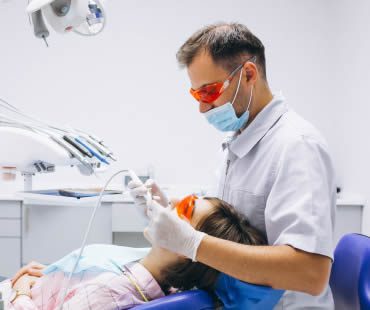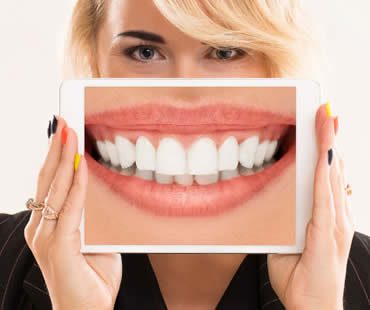
Mar 28, 2024 | Blog, Dental Information, Dental Topics 3
The traditional silver fillings that patients have been getting for many years have come into the spotlight in recent years. Some people wonder if these silver, or amalgam, fillings are safe because they contain small amounts of mercury.
Background
Amalgam fillings contain a mixture of half liquid mercury and half a blend of silver, copper, and tin. This material is soft and malleable, which makes it easy to be sculpted to fit well into the tooth and not affect the patient’s bite. Amalgam fillings have been used to fill cavities for over 150 years.
Risks
The concern about mercury as an ingredient in amalgam fillings is due to the health risks of toxicity or allergies associated with exposure. Significant mercury exposure can cause chronic illnesses, autoimmune disorders, birth defects, oral lesions, and mental disorders. The FDA has investigated the safety of amalgam fillings, however, and determined that the mercury levels are too low to present adverse health risks for adults or children over age six. It has also been deemed safe for nursing mothers to have amalgam fillings. Both the FDA and the American Dental Association maintain that these types of fillings are safe.
Alternatives
Patients who are uncomfortable with amalgam fillings may choose composite resin material instead. This newer type of filling is used in about 70 percent of fillings performed today, and many patients prefer the tooth-colored resin because it is less noticeable in the mouth than silver fillings. Patients who have concerns about amalgam fillings already in place may ask the dentist about switching to composite resin instead.
Take the first step towards a confident smile. Contact our Bingham Farms dental office to schedule your consultation!

Mar 21, 2024 | Blog, Dental Information, Dental Topics 3
Some people take a bite of ice cream or a sip of hot coffee and experience discomfort, usually brought on by teeth sensitivity. These unpleasant sensations typically occur when you eat anything that is cold, hot, or sweet. Several factors can cause teeth sensitivity, including tooth damage, over brushing, enamel wear, and whitening products.
To give your mouth relief and lessen sensitivity, consider these helpful hints:
Brush correctly
In an effort to maintain good oral health, some people brush too aggressively and end up damaging their teeth. Choose a soft-bristled toothbrush and gently clean teeth at least twice a day.
Use the right product
For people with sensitive teeth, specially formulated toothpastes may reduce the symptoms. These products usually contain potassium nitrate, an ingredient that helps block the tiny tubules in the layer of dentin and reduces sensitivity with each use.
Watch your diet
Foods and beverages high in acid content, like tomatoes, oranges, and fruit drinks, contribute to enamel erosion, which is a main cause of tooth sensitivity. Limiting your intake will help lessen your discomfort. When you do consume these items, rinse your mouth with water afterward to minimize exposure.
Deal with bruxism
Clenching and grinding your teeth can make teeth sensitivity worse. Wearing a night guard will help control bruxism and help you feel better.
Be careful when you whiten
A bright smile is a great asset, but some people overuse whitening products, which can cause teeth to feel sensitive. Usually this sensation passes once you stop whitening. Make sure to follow all the directions carefully so that you don’t hurt your teeth.
Are dental issues holding you back? Take control of your oral health by booking an appointment with our experienced team at our Bingham Farms dental office.

Mar 14, 2024 | Blog, Dental Information, Dental Topics 3
Everyone wants to attain a brilliant, white smile. Modern dentistry can help you achieve this goal with Invisalign teeth whitening or cosmetic enhancements such as veneers or porcelain crowns. Brushing and flossing will help you keep your smile in prime condition. Your diet can impact your teeth as well. Certain foods and beverages can darken your teeth, including:
• Tea Time
Considered a healthy beverage, tea may not keep your teeth white. In fact, black tea can leave more stains than coffee.
• Saucy Saucy
Yummy extras like soy sauce, tomato sauce, and curry sauce may taste delicious, but they have significant potential in the stain department. Choose lighter cream sauces or brush right away to limit issues.
• Sports Power
Highly acidic beverages, like sports or energy drinks, erode tooth enamel and make teeth more susceptible to stains. Try water when you exercise as a safer choice for your smile.
• A Little Wine
If a drink will stain your linens, it can also alter the appearance of your pearly whites, so limiting your intake of wine can protect your smile.
• Berry Good
Though blackberries, cherries, and blueberries are great for your body, the deeply pigmented molecules in these fruits can stick to enamel and cause discoloration. Pies and juices containing these foods can also stain teeth.
• Bubbling Over
Frequently a cause of stains, sodas and other carbonated drinks have acid and chromogens, which can lead to serious stains. Even lighter colored drinks have enough acid to allow staining from other foods and beverages.
Take the first step towards optimal oral hygiene. Reserve your dental appointment at our Bingham Farms dental office now and experience personalized care.

Jan 4, 2024 | Blog, Dental Information, Dental Topics 3
White teeth are a sign of beauty and health. Having pearly whites shows that you take pride in your appearance and gives you a confident air. There are many ways to achieve a brighter smile; here are some tips to help you get that shiny glow.
Professional whitening is a sure-fire way to brighten your smile by numerous shades. In only an hour, your smile can go from dull and dingy to white and polished. Your dental professional can guide you in the best ways to enhance your look with tools such as lasers or whitening trays. Professional methods are the quickest route to a dramatic improvement in the shade of your teeth.
If you prefer methods in your own home, drugstores have lots of options. Whitening strips, gels, and toothpastes are only a few of the choices available. These typically require consistent use for an extended period, but they can improve the color of your teeth with proper use. Follow the instructions carefully for the best results.
There are also natural ways to whiten your teeth at home. Rubbing your teeth with the back of a lemon or orange peel can help, and adding a little salt can make it even more effective. Strawberries may be directly rubbed onto your teeth, or made into a paste by mashing them up with a little water and then brushing onto your teeth for five minutes. Each of these methods should be followed by thorough rinsing of the mouth to eliminate residue or acids left behind.
Baking soda is a proven ingredient to help brighten your smile. Mixing baking soda and water to form a paste that can then be brushed onto your teeth is a great tip. Follow up by rinsing with water or hydrogen peroxide, and then brushing normally with toothpaste.
Consult your dentist to make sure you aren’t harming your teeth or mouth when you try any whitening methods yourself. If you experience pain, stop and ask your dentist for advice. Do not use over-the-counter or professional whitening methods during pregnancy without consulting your doctor first.
Are dental issues holding you back? Take control of your oral health by booking an appointment with our experienced team at our Bingham Farms dental office.

Dec 28, 2023 | Blog, Dental Information, Dental Topics 3
Also called onychophagia, nail biting is a common habit for lots of people, usually children, teens, and young adults. Often, nail biting is caused by stress and seems to wane as people get older. Though some would argue that it’s not as bad as smoking or other less desirable habits, there are several reasons to stop nail biting:
It’s unsanitary. Did you know that your mouth and your hands/nails are two of the germiest areas on your body? If you have any open sores on your fingertips and you bite your nails, the germs from your mouth spread to that area. Pretty gross if you think about it.
It’s unattractive. Nobody really wants to watch someone bite their nails. As well, it doesn’t make your nails look very nice either.
It hurts your teeth. When you bite your nails, it strains front teeth and can weaken them, which may contribute to misalignment or crookedness. Nail biting also keeps your teeth in constant chewing motion and may wear them down faster than if you didn’t bite your nails.
It can cost you money. The Academy of General Dentistry estimates that nail biting may add $4000 to dental bills over a lifetime.
Stopping any habit can be difficult. To curtail your nail biting, try to:
- Think about it. Sometimes, just be conscious of this habit can help you stop.
- Make your nails look nice. You won’t want to mess them up if they are neatly manicured.
- Create a deterrent. Check at the drug store for colorless, odorless solutions you apply to the
nails. These topicals taste awful, which should make it easier to quit.
Do you live in Bingham Farms or the surrounding area? Our team is ready to help you achieve your smile goals. Schedule your appointment today.

Dec 21, 2023 | Blog, Dental Information, Dental Topics 4
The Truth about Your Teeth and Health
Your smile is a canvas that reveals more than just your personality. It could also expose some underlying health issues that you might not be aware of. Your dental health deserves as much attention as any other aspect of your overall well-being.
The Importance of Dental Health
Oral hygiene is more than just getting rid of bad breath and yellow teeth. Brushing, flossing, and regular visits to the dentist are essential to prevent cavities, gum disease, and tooth loss. Neglecting your dental health could lead to serious health issues such as heart disease, stroke, diabetes, respiratory problems, and even cancer.
How Teeth Can Reveal Underlying Health Issues
Your teeth are like windows into the state of your overall well-being. Changes in their appearance or sensitivity could indicate underlying health conditions such as acid reflux disease or osteoporosis.
Even a simple cavity could lead to complications in other parts of the body if left untreated. Taking care of your dental health is crucial for a healthy life.
Don’t take your pearly whites for granted! The next sections will dive deeper into what healthy teeth look like and how different dental issues can reveal underlying health concerns.
What healthy teeth look like
Characteristics of healthy teeth
Healthy teeth have a few distinct characteristics. For starters, they are generally white or off-white in color, but not overly bright.
They also don’t have any noticeable chips or cracks, and they fit comfortably in the mouth without causing discomfort or pain. Healthy teeth are also firmly anchored in their sockets and don’t move around when you bite down.
Another key characteristic of healthy teeth is that they are clean and free of plaque buildup. Plaque is a sticky film that forms on the surface of your teeth when bacteria combine with food particles.
Over time, this can lead to tooth decay and gum disease. That’s why it’s so important to brush your teeth twice a day and floss daily.
Importance of regular dental checkups and cleanings
Even if your teeth look healthy on the outside, there could be hidden issues lurking beneath the surface. That’s why it’s crucial to schedule regular dental checkups with your dentist at least once every six months.
During these appointments, your dentist will examine your mouth for signs of tooth decay, gum disease, oral cancer, and other issues that could affect your overall health. They’ll also perform a thorough cleaning to remove any plaque or tartar buildup that you may have missed during your daily oral hygiene routine.
Regular dental checkups can help catch problems early before they turn into bigger (and more expensive) issues down the road. Plus, it gives you an opportunity to ask questions about proper oral care techniques or get advice on how to improve your overall dental health.
What discolored teeth indicate
One of the most obvious signs of potential health issues is tooth discoloration. Discoloration can be caused by a variety of factors, including poor dental hygiene, genetics, and lifestyle habits such as smoking or drinking heavily pigmented beverages like coffee or tea. However, it’s important to note that some types of discoloration can also be indicative of underlying health issues.
Causes of tooth discoloration
The most common causes of tooth discoloration are external factors such as foods, drinks and smoking, but there are also internal causes that can’t be treated with simple whitening procedures. These internal causes include:
- Tetracycline use: a type of antibiotic that can cause permanent staining in teeth.
- Fluorosis: excessive fluoride intake during childhood which results in white spots or streaks on the teeth.
- Tooth trauma: an injury to a tooth that can result in darkening or graying over time.
Possible underlying health issues
If you notice unusual tooth discoloration that isn’t related to external factors and doesn’t respond to whitening treatments, it’s important to talk to your dentist about the possibility of underlying health issues. In some cases, yellowing or grayish tones could be indicative of liver disease or other systemic conditions. Similarly, white spots on the teeth could indicate celiac disease or other autoimmune disorders.
Your dentist may recommend additional testing if they suspect an underlying condition is causing your tooth discoloration. At the very least they will take x-rays and perform a thorough oral exam to help determine the cause and possible treatment options.
What sensitive teeth mean
Sensitive teeth can be a real pain, quite literally. They can cause discomfort while eating or drinking hot or cold foods, and may even make it difficult to brush your teeth properly. Sensitive teeth occur when the enamel on your tooth is worn down or your gums have receded, exposing the underlying layer of dentin that contains the tooth’s nerves.
Causes of tooth sensitivity
Tooth sensitivity can be caused by a variety of factors, including: – Brushing too hard – Eating acidic foods
– Gum disease – Teeth grinding
– Tooth decay – Tooth whitening products
Possible underlying health issues
Tooth sensitivity can also be a sign of underlying health issues such as: – Gastrointestinal disorders
– Sinus infections – Vitamin deficiency (particularly vitamin D)
If you experience consistent tooth sensitivity, it’s important to visit your dentist to rule out any potential dental issues and get to the root cause of what’s causing your sensitive teeth. In some cases, treatment may include using desensitizing products like special toothpaste or fluoride treatments.
What crooked or misaligned teeth indicate
Crooked or misaligned teeth can affect one’s confidence and self-esteem, but they can also reveal underlying health issues. When a person’s teeth are not properly aligned, it can cause problems with their bite, speech, and ability to chew food. Crooked teeth can also make it difficult to keep the mouth clean, which increases the risk of cavities and gum disease.
Causes of crooked or misaligned teeth
There are several factors that can contribute to crooked or misaligned teeth. Genetics is a major factor as some people are born with small jaws or crowded teeth that make it difficult for their permanent teeth to come in straight. Thumb-sucking and pacifier use beyond age three may also lead to crooked teeth when the adult teeth come in.
Injuries to the jaw or face may also cause structural damage that leads to unevenly spaced or angled teeth. Poor dental care through lack of brushing and flossing may lead to tooth decay, gum inflammation which could result in shifting of adjacent healthy tooth leading to overlapping and crowding.
Possible underlying health issues
Crooked or misaligned teeth sometimes indicate underlying health issues such as sleep apnea caused by a narrow airway that is commonly seen with malocclusion (poor alignment of upper and lower jaw), digestive disorders like acid reflux which may be due to improper function of oral cavity muscles during chewing processes leading acid exposure on surface enamel resulting in tooth erosion over time; eating disorders like bulimia nervosa- due frequent vomiting associated with this disorder there is repeated exposure of hydrochloric acid on tooth surface causing enamel erosion leading chipping off the edges making them jagged; anxiety disorders causing habits like grinding/ clenching of jaws (bruxism) etc. It is important for individuals with misaligned teeth to consult their dental health provider for proper diagnosis and treatment. These underlying health issues, if not addressed, could lead to more serious health problems in the future.
What missing or damaged teeth say about your overall health
Missing or damaged teeth not only cause cosmetic concerns but can also reveal underlying health issues. Losing a tooth can indicate poor dental hygiene, gum disease, or an injury that has caused the tooth to fall out. Similarly, a chipped or broken tooth could be due to trauma, grinding your teeth at night, or decay caused by poor oral hygiene.
Causes of missing or damaged teeth
One of the most common causes of missing teeth in adults is periodontal disease, which is a bacterial infection that damages the gums and bones that support your teeth. Poor dental hygiene can also contribute to tooth loss as it leads to gum disease and cavities that may eventually lead to the need for extractions. Trauma from accidents or sports injuries may also result in missing or damaged teeth.
Possible underlying health issues
Missing or damaged teeth may not only affect your oral health but also have implications for your overall health. For example, if you have lost several teeth due to gum disease, it could put you at higher risk for heart disease as bacteria from the inflamed gums can enter your bloodstream and cause inflammation in other parts of your body.
Similarly, untreated decayed teeth can lead to infections that spread to other parts of the body if left untreated. Missing front teeth may even have an impact on speech and self-confidence.
It’s essential to take care of dental problems as soon as they arise because they might reveal underlying medical problems such as diabetes, osteoporosis, cancer, nutritional deficiencies among others. Taking care of our oral health is crucial as it not only helps maintain healthy-looking smiles but can also help detect potential medical conditions early enough for effective treatment
The Importance of Maintaining Good Oral Hygiene for Overall Health
Taking care of your teeth and maintaining good oral hygiene is essential to your overall health. Your teeth can reveal underlying health issues, so it’s important to pay attention to any changes in their appearance or sensitivity. Regular dental checkups and cleanings can help prevent serious dental problems and detect any potential issues early on.
Poor oral hygiene can lead to a variety of health problems, including gum disease, tooth decay, and even heart disease. By properly brushing and flossing your teeth daily, as well as avoiding sugary foods and drinks, you can improve your overall health and well-being.
Remember that good oral hygiene also includes regular visits to the dentist for professional cleanings and checkups. If you notice any changes in the appearance or sensitivity of your teeth, don’t hesitate to schedule an appointment with your dentist.
By taking care of your teeth and maintaining good oral hygiene habits, you’ll not only look better but also feel better. So let’s all make a commitment to prioritize our dental health for the sake of our overall health!
Are dental issues holding you back? Take control of your oral health by booking an appointment with our experienced team at our Bingham Farms dental office.






